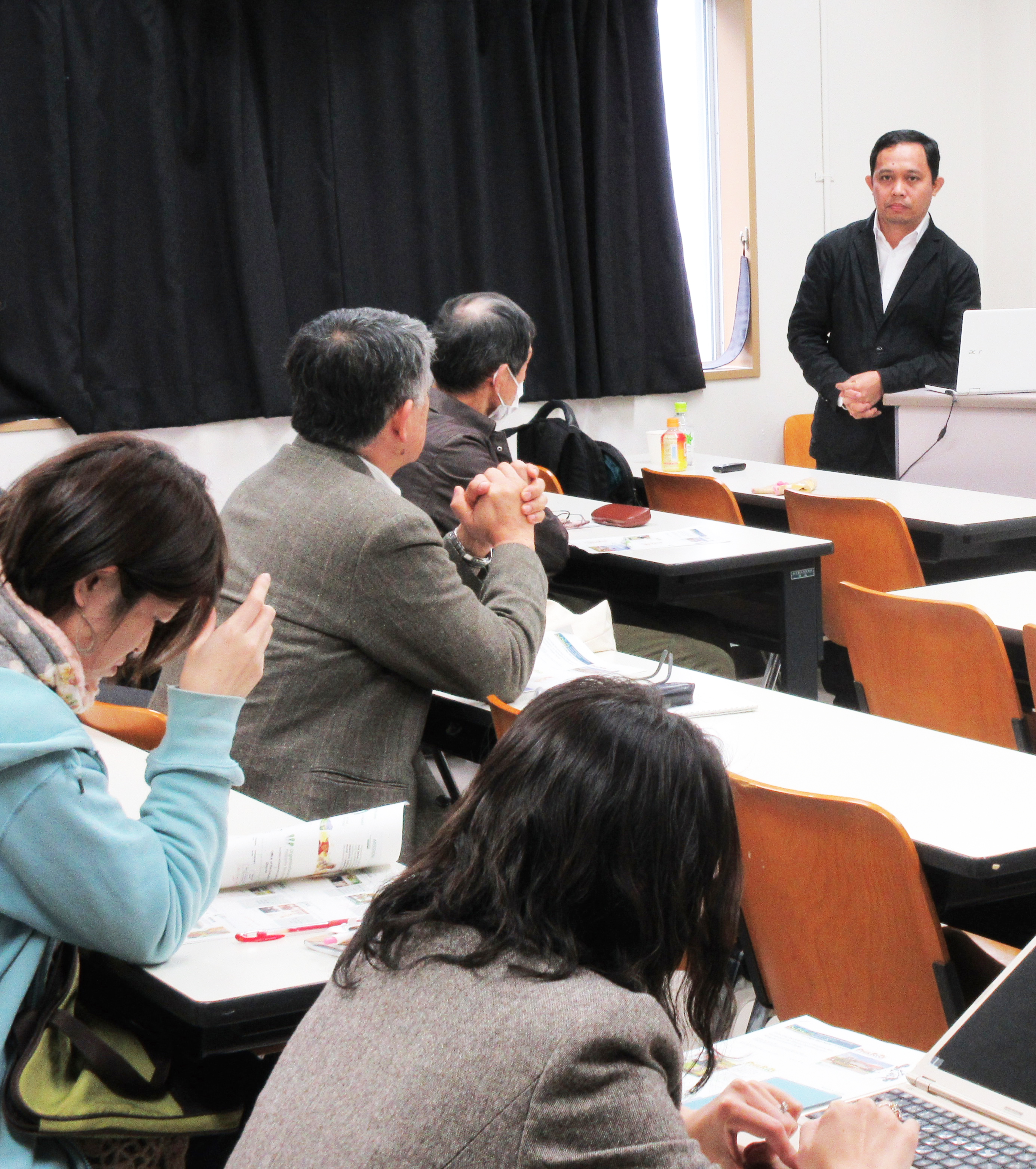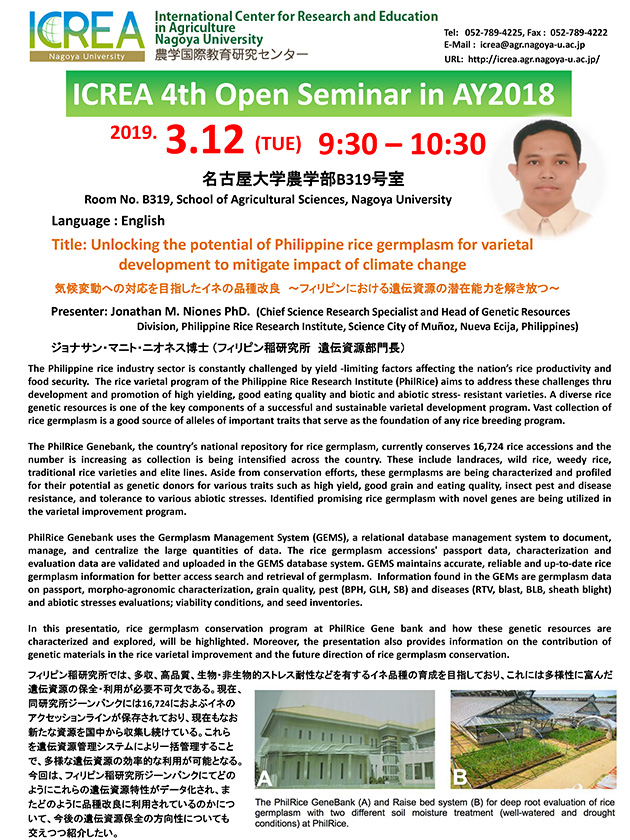Events
ICREA 4th Open Seminar in AY2018
"Unlocking the potential of Philippine rice germplasm for varietal development to mitigate impact of climate change"
Uploaded Date: 2024-08-23
Program
| Date | 12 March, 2019 (TUE) 9:30-10:30 |
|---|---|
| Venue | Lecture Room No. B319, School of Agricultural Sciences, Nagoya University |
| Speaker | Jonathan M. Niones PhD. Chief Science Research Specialist and Head of Genetic Resources Division, Philippine Rice Research Institute, Science City of Muñoz, Nueva Ecija, Philippines |
| Language | English |
The Philippine rice industry sector is constantly challenged by yield -limiting factors affecting the nation's rice productivity and food security. The rice varietal program of the Philippine Rice Research Institute (PhilRice) aims to address these challenges thru development and promotion of high yielding, good eating quality and biotic and abiotic stress- resistant varieties. A diverse rice genetic resources is one of the key components of a successful and sustainable varietal development program. Vast collection of rice germplasm is a good source of alleles of important traits that serve as the foundation of any rice breeding program.
The PhilRice Genebank, the country's national repository for rice germplasm, currently conserves 16,724 rice accessions and the number is increasing as collection is being intensified across the country. These include landraces, wild rice, weedy rice, traditional rice varieties and elite lines. Aside from conservation efforts, these germplasms are being characterized and profiled for their potential as genetic donors for various traits such as high yield, good grain and eating quality, insect pest and disease resistance, and tolerance to various abiotic stresses. Identified promising rice germplasm with novel genes are being utilized in the varietal improvement program.
PhilRice Genebank uses the Germplasm Management System (GEMS), a relational database management system to document, manage, and centralize the large quantities of data. The rice germplasm accessions' passport data, characterization and evaluation data are validated and uploaded in the GEMS database system. GEMS maintains accurate, reliable and up-to-date rice germplasm information for better access search and retrieval of germplasm. Information found in the GEMs are germplasm data on passport, morpho-agronomic characterization, grain quality, pest (BPH, GLH, SB) and diseases (RTV, blast, BLB, sheath blight) and abiotic stresses evaluations; viability conditions, and seed inventories.
In this presentatio, rice germplasm conservation program at PhilRice Gene bank and how these genetic resources are characterized and explored, will be highlighted. Moreover, the presentation also provides information on the contribution of genetic materials in the rice varietal improvement and the future direction of rice germplasm conservation.



